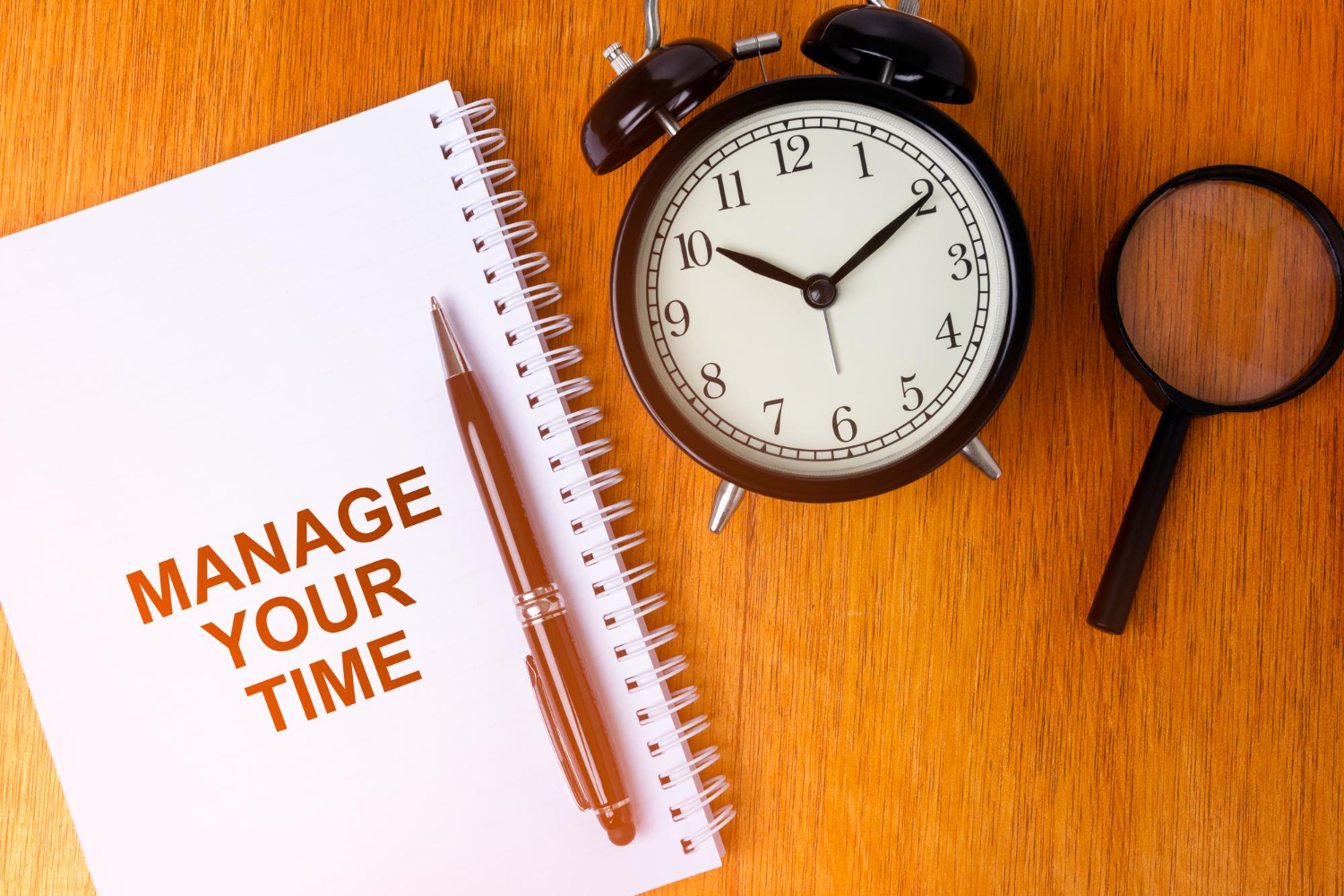Proven Methods to Overcome Procrastination and Boost Focus
Have you ever sat down, ready to tackle a crucial task, only to find yourself endlessly scrolling social media or rearranging your desk clutter instead? You're certainly not alone. Procrastination—the destructive habit of delaying necessary tasks—affects everyone from ambitious professionals to overwhelmed students. In fact, recent studies indicate that nearly 88% of people admit to procrastinating at least one hour per day.
If procrastination has become your nemesis, holding you back from achieving your fullest potential, rest assured—there is hope. Today, I'm excited to share 12 practical and actionable methods to overcome procrastination and boost your focus dramatically. These strategies are simple yet powerful, designed to transform your work habits and boost your productivity.
Let's dive in and unravel these productivity hacks that will empower you to finally take control of your time, motivation, and results.
1. Use the "Two-Minute Rule" to Beat Delay
One of the most powerful procrastination-fighting tactics is the Two-Minute Rule, introduced by David Allen in his renowned book, Getting Things Done. The concept is straightforward: if a task takes two minutes or less, complete it immediately. Often, procrastination occurs when we feel overwhelmed by small tasks piling up.
Here's the catch—by directly addressing tiny tasks, you eliminate minor stressors blocking your focus. You also gain momentum, making larger tasks seem less intimidating. Imagine spotting a quick two-minute task, like responding briefly to an email or scheduling a meeting. Completing these right away significantly boosts your productivity.
A real-life example is journalist Sarah, who adopted the two-minute rule and shared her experience in a productivity blog. Within weeks, Sarah felt far less overwhelmed at work, minimized task buildup, and successfully regained clarity to tackle more extensive tasks systematically.
2. Implement Time Blocking for Structured Focus
Struggling with focus? The productivity technique known as time blocking can transform your daily workflow. This technique involves breaking your schedule into clearly defined blocks of dedicated focus, during which you fully concentrate on a single task or similar tasks grouped logically.
For example, you might block 9:00–11:00 AM strictly for research and conception, followed by another block dedicated solely to meetings. Entrepreneur Elon Musk famously schedules his packed days using five-minute increments, showcasing how powerful time blocking can be.
To start effectively:
- Predefine your most vital daily priorities.
- Allocate uninterrupted blocks of time in your calendar dedicated specifically to each priority.
Doing so curbs distractions and provides your brain clarity and predictability, significantly cutting down mental strain.
3. Tackle Your Toughest Tasks First (Eat That Frog Technique)
Brian Tracy, acclaimed productivity expert and author of Eat That Frog, suggests tackling your hardest task first every day. The "frog" represents your most intimidating or unpleasant task—the one you're most inclined to procrastinate on.
By getting this daunting task done first thing, you experience relief and a sense of achievement. It reduces anxiety throughout your day, allowing smoother productivity during other tasks. Suppose you're dreading a tough client call scheduled later. Prioritize it early, approach it confidently, and feel accomplished once you've got it behind you.
Consider Mark Twain's timeless advice: "Eat a live frog first thing in the morning, and nothing worse will happen to you for the rest of the day." Tracy urges you to tackle intimidating tasks promptly, thereby reshaping your mindset toward productivity and minimizing procrastination.
4. Practice the Pomodoro Technique to Maximize Concentration
Developed by Francesco Cirillo, the renowned Pomodoro Technique encourages short, well-defined bursts of productive work followed by quick breaks. Typically, work for 25 minutes (one "Pomodoro"), then rest for 5 minutes. After four cycles, take a longer break of 15–30 minutes.
This structure effectively clears mental fatigue and boosts focus immensely. According to a study from The Guardian, workers employing Pomodoro regularly reported increased work quality, better focus, and reduced exhaustion.
Let's say student Emma struggles with distractions. By setting a Pomodoro timer, she commits to working solely on her essay for 25 minutes, postponing distractions until her break. This simple method helps Emma continually meet deadlines with greater ease and satisfaction.
5. Leverage the Power of Accountability Partners
Having an accountability partner significantly boosts productivity. An accountability partner holds you responsible for your established goals and deadlines, increasing both commitment and motivation.
For instance, partnering with a colleague who also procrastinates keeps both of you mutually responsible. Weekly check-ins to report progress encourage you to stick to commitments to avoid disappointment.
Business psychology expert Dr. Gail Matthews conducted compelling research showing that individuals accountable to someone else achieve tasks and goals 65% more regularly than those without accountability.
Finding the right accountability partner encourages consistent productivity and is one of the most rewarding strategies for improved focus.
6. Declutter Your Workspace to Minimize Distractions
Ever heard the phrase, "A cluttered desk equals a cluttered mind?" Studies prominently support workspace organization as a critical factor in diminishing procrastination. Princeton neuroscience research indicates that working in a clean, uncluttered environment sharply increases productivity and decreases mental fatigue.
To start, clear off anything unnecessary from your immediate workspace. Utilize organizational tools like labeled trays, drawers, or digital folders. For example, keep only current task essentials at hand—this reduces mental overload and directs your focus solely toward the task.
Financial analyst Alex described a massive productivity leap when he embraced workspace minimalism. Removing crowded paperwork and distractions profoundly shaped his daily productivity levels and satisfaction.
7. Set Realistic Daily Goals and Deadlines
Often procrastination results when our goals feel overly ambitious or overwhelming. Setting realistic, manageable goals tailored to your daily capacity is key to consistently feeling successful and productive.
What does realistic goal-setting entail?
- List tasks daily and prioritize no more than three core priorities per day.
- Allocate flexible and achievable deadlines within your day to relieve unnecessary stress.
Research from psychologist Dr. Timothy Pychyl suggests achievable daily targets psychologically reassure your brain, significantly curbing procrastination and boosting momentum toward larger goals.
8. Limit Access to Digital Distractions Strategically
Social media and notifications are infamous productivity pitfalls. Using web browser blockers or productivity apps like Freedom or Forest allows you to create dedicated distraction-free sessions, facilitating amplified focus.
Suppose graphic designer Jason noticed Instagram consistently derailing focused efforts. By strategically limiting his digital distractions through productivity apps, Jason noted instant improvement, better performance, and significantly decreased procrastination.
Incorporating this strategy lets you proactively create an environment optimized for meaningful work rather than scatter your attention across distracting habits.
9. Adopt Mindfulness Practices for Increased Mental Clarity
Practicing mindfulness daily enhances self-awareness and clarity. Harvard studies illustrate how mindfulness meditation directly improves cognitive skills, effectively enhancing productivity and minimizing impulsive procrastination.
Take a few mindful minutes daily—simply breathing and observing thoughts without judgment. Doing so refreshes your focus, enhances mental clarity, and reorients proactive energy toward challenging tasks.
10. Prioritize Quality Over Quantity with the 80/20 Rule
The Pareto principle, widely known as the 80/20 Rule, argues 80% of your productivity results from just 20% of essential, core tasks. Focusing primarily on impactful tasks ensures higher productivity and lower procrastination tendencies.
Regularly identify tasks providing maximum value. Imagine blogger Jamie noticing most traffic growth from video marketing. Therefore, Jamie prioritizes video creation, significantly boosting effectiveness while minimizing procrastination from peripheral tasks.
11. Maintain Consistent Energy with Healthy Habits
Neglecting self-care and health drastically lowers productivity. Incorporating healthy lifestyle habits, such as regular exercise, adequate hydration, and balanced diet, sustainably improves cognitive focus and reduces procrastination incidences.
12. Regularly Evaluate and Adjust Your Productivity Methods
Each person has productivity methods that resonate best. Regularly evaluate and tweak your approach based on what's most effective for you.
Keep a short weekly productivity journal noting what's working and what isn't. Adjust tactics accordingly—continuous productivity refinement significantly reduces procrastination long-term.
#ProcrastinationTips #ProductivityBoost #TimeManagement #StayFocused #EffectiveWorkStrategies
You May Also Like
These Related Stories

5 Proven Strategies to Achieve Your Goals and Boost Productivity

Boost Workplace Performance: Proven Productivity Strategies

No Comments Yet
Let us know what you think